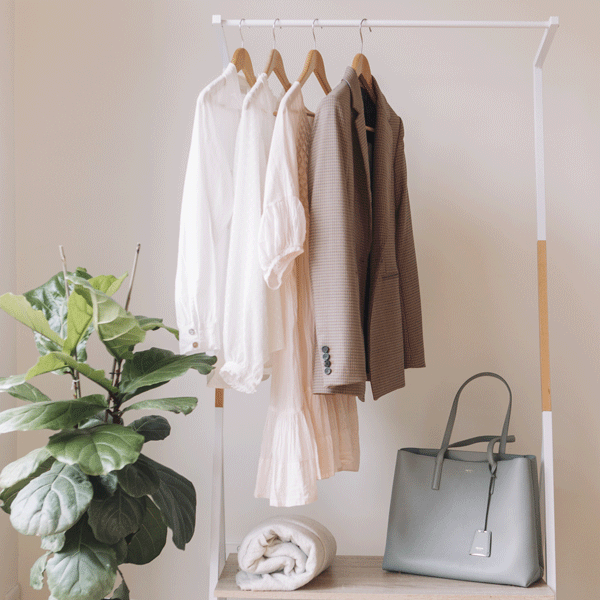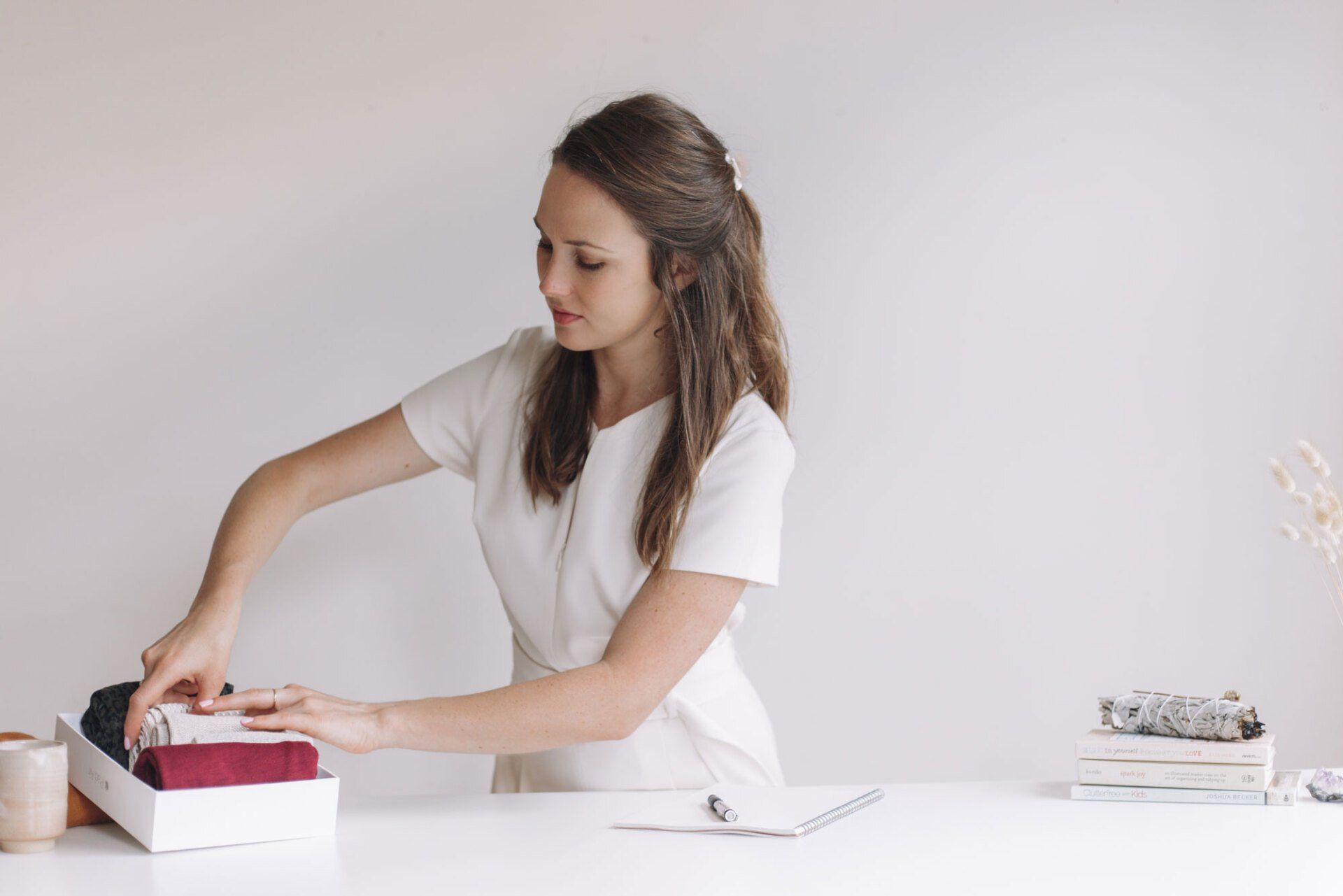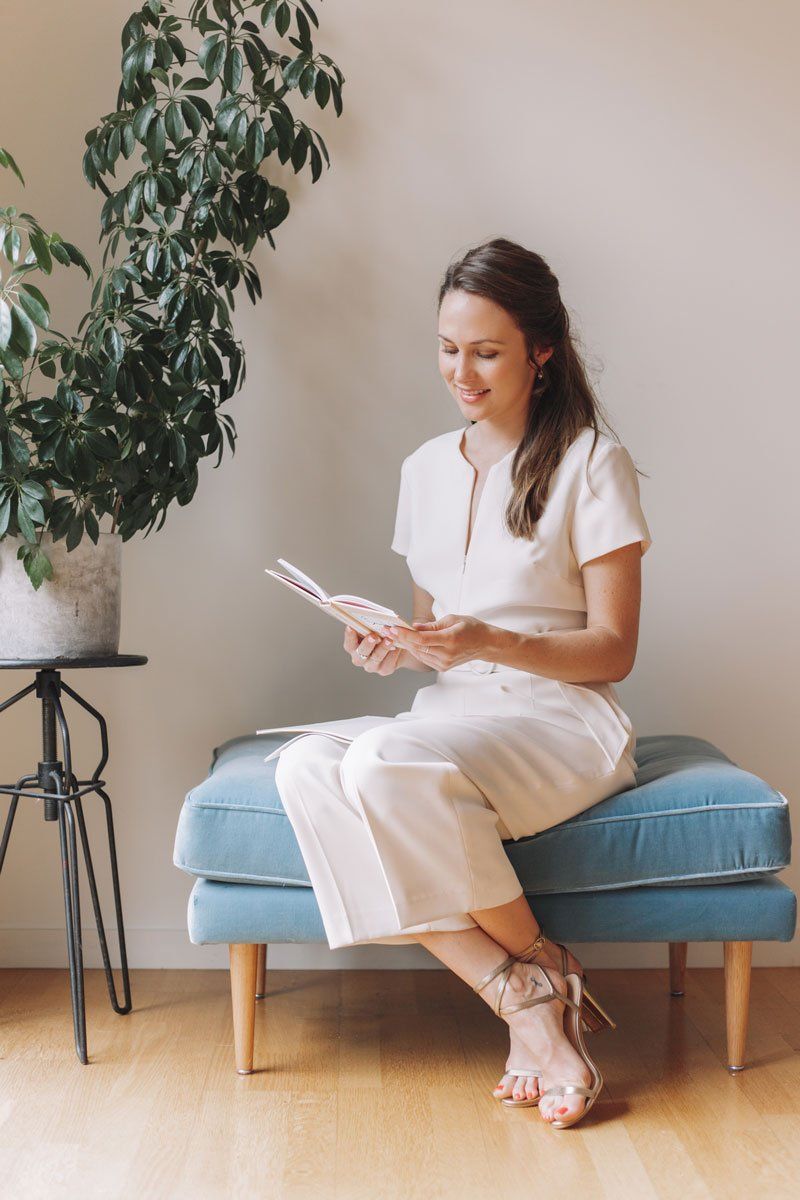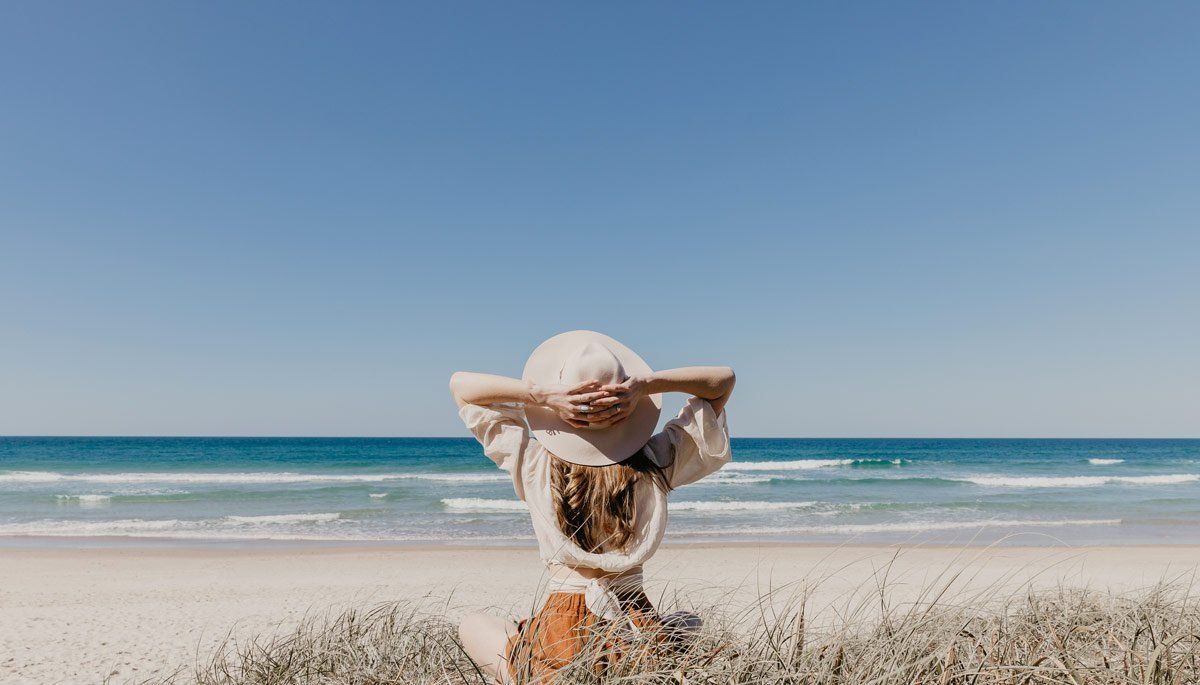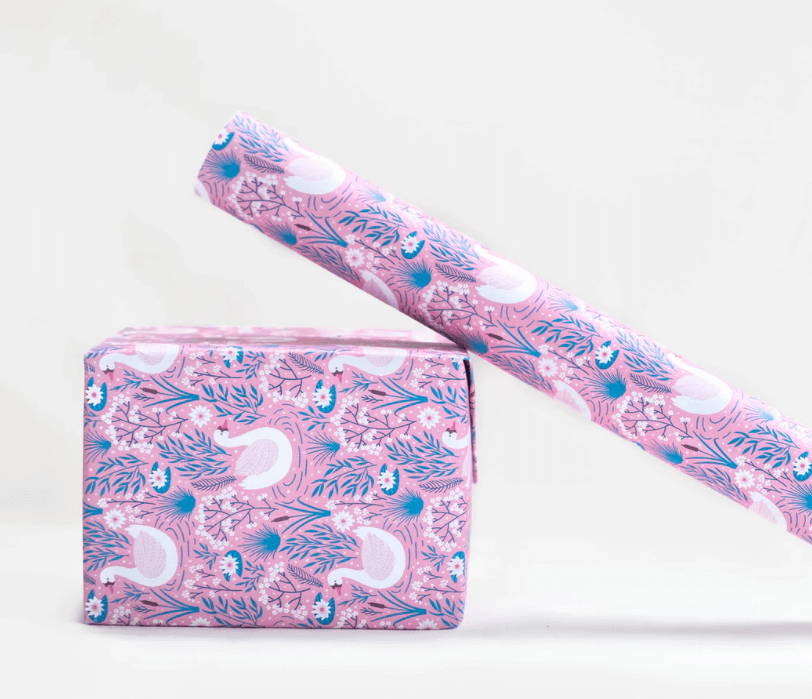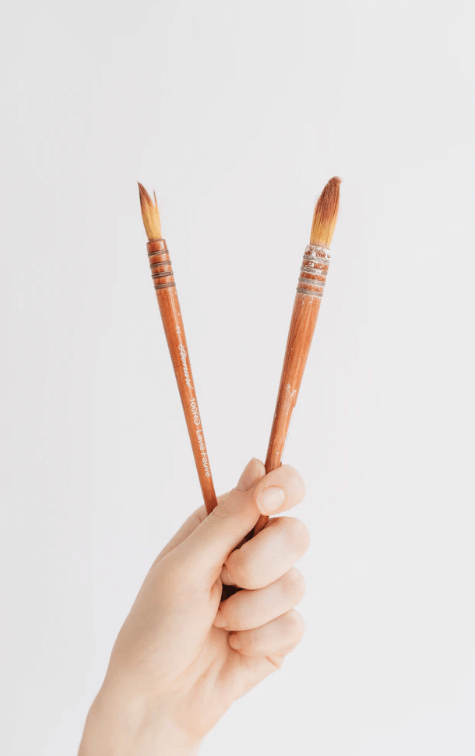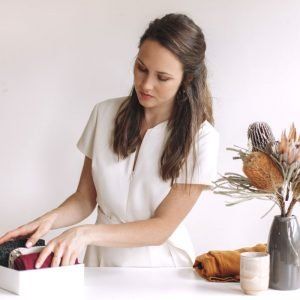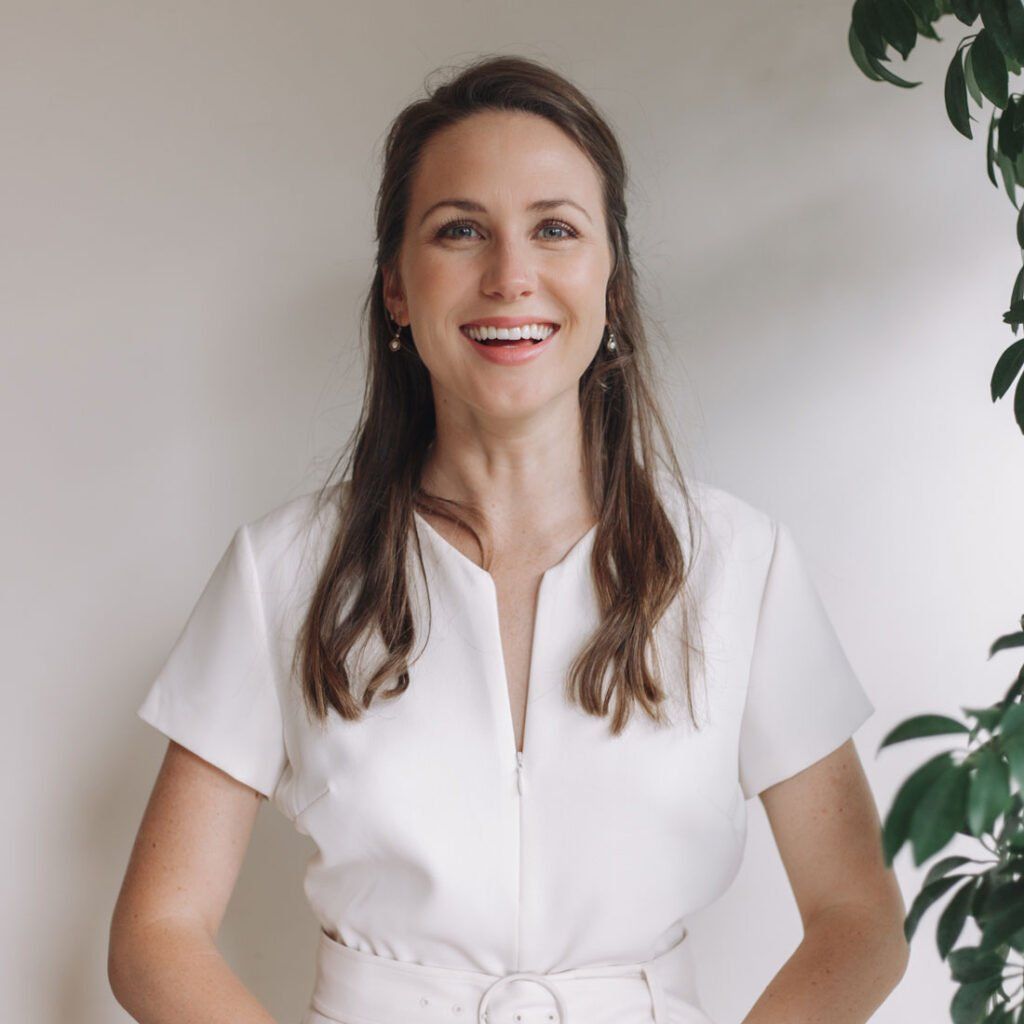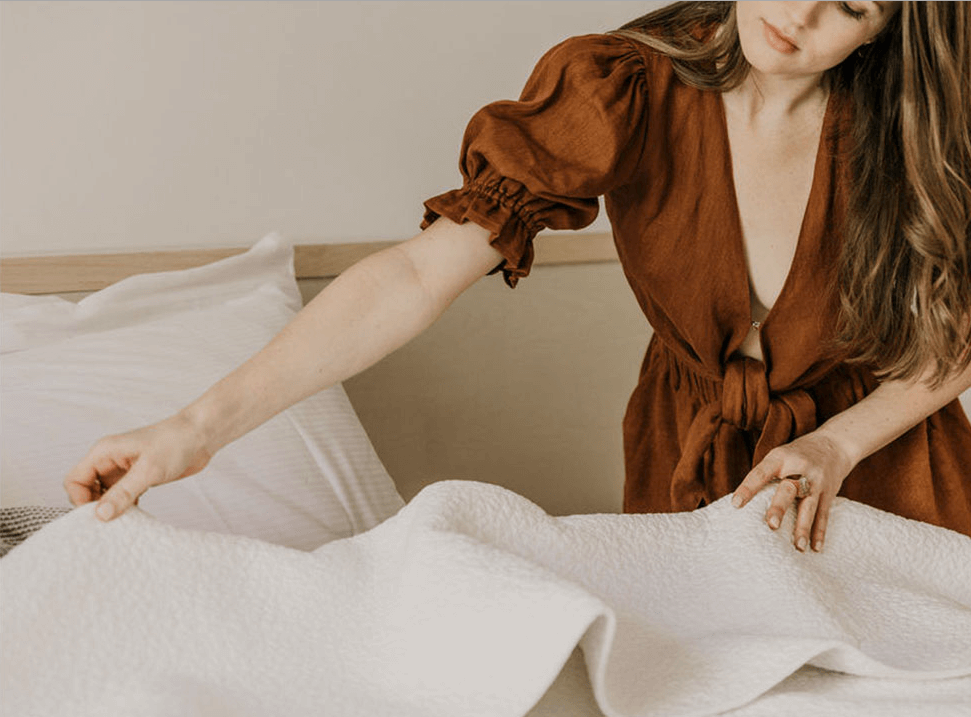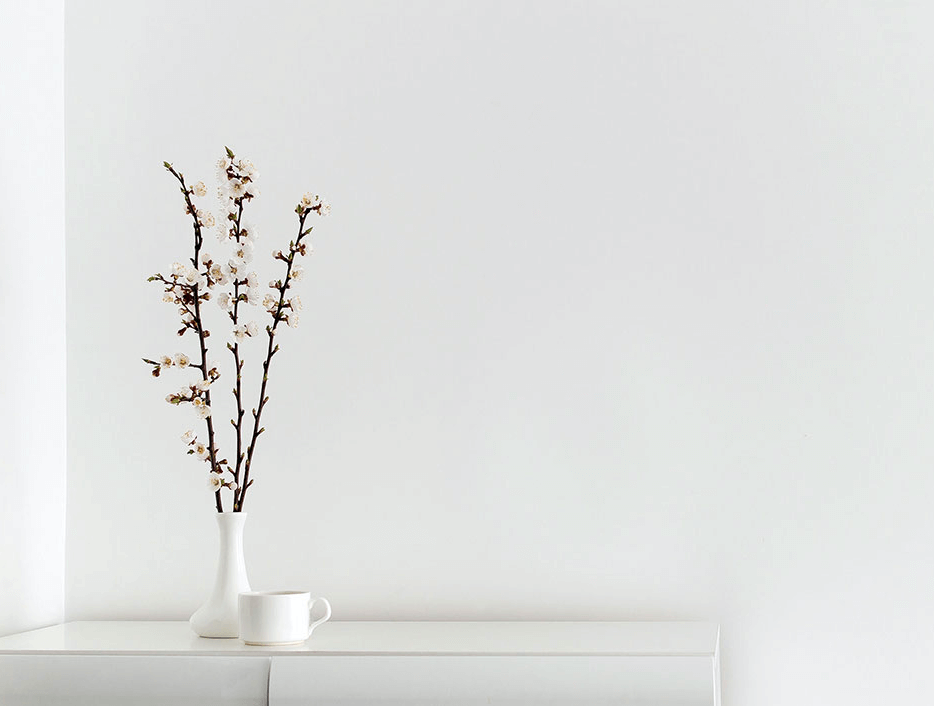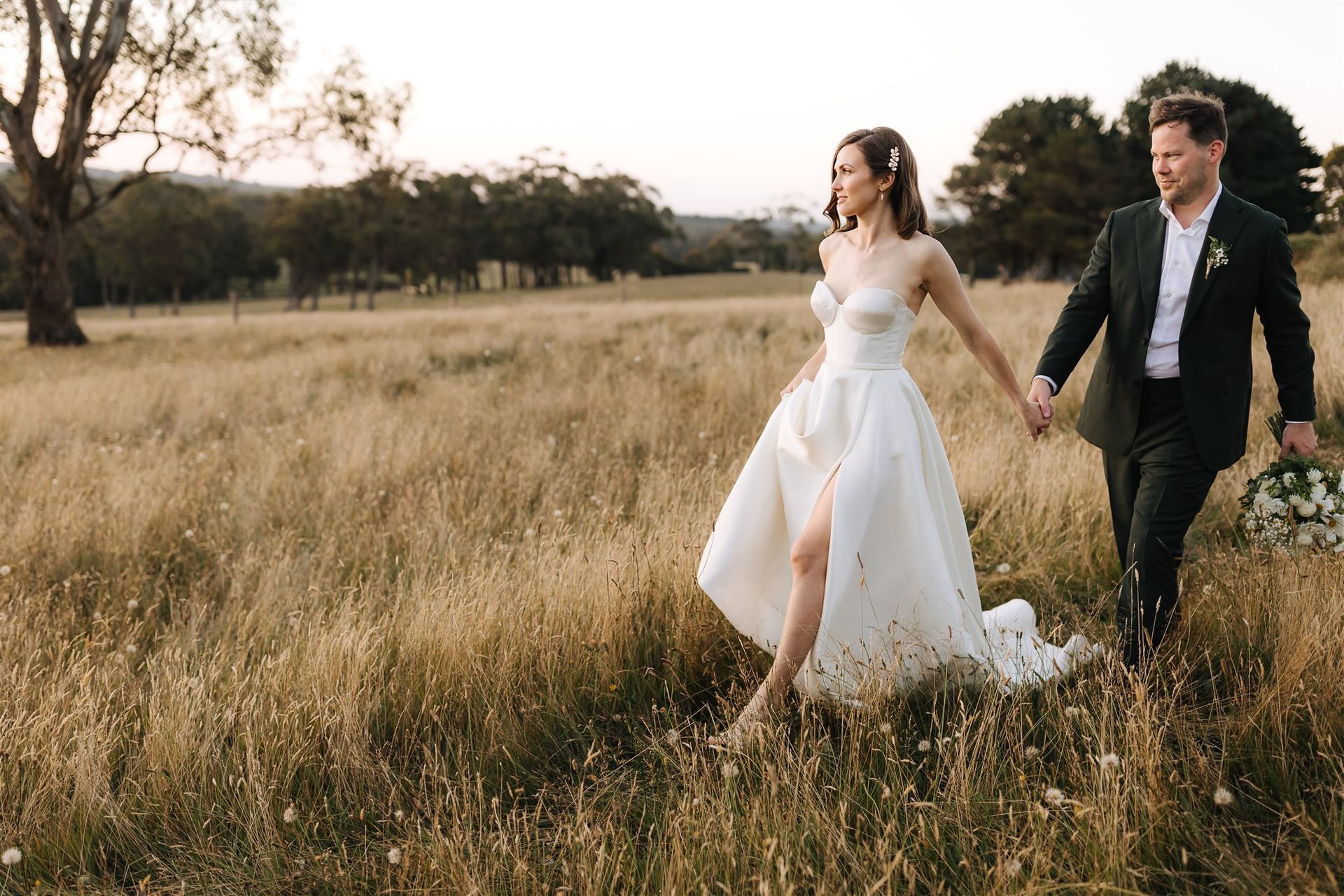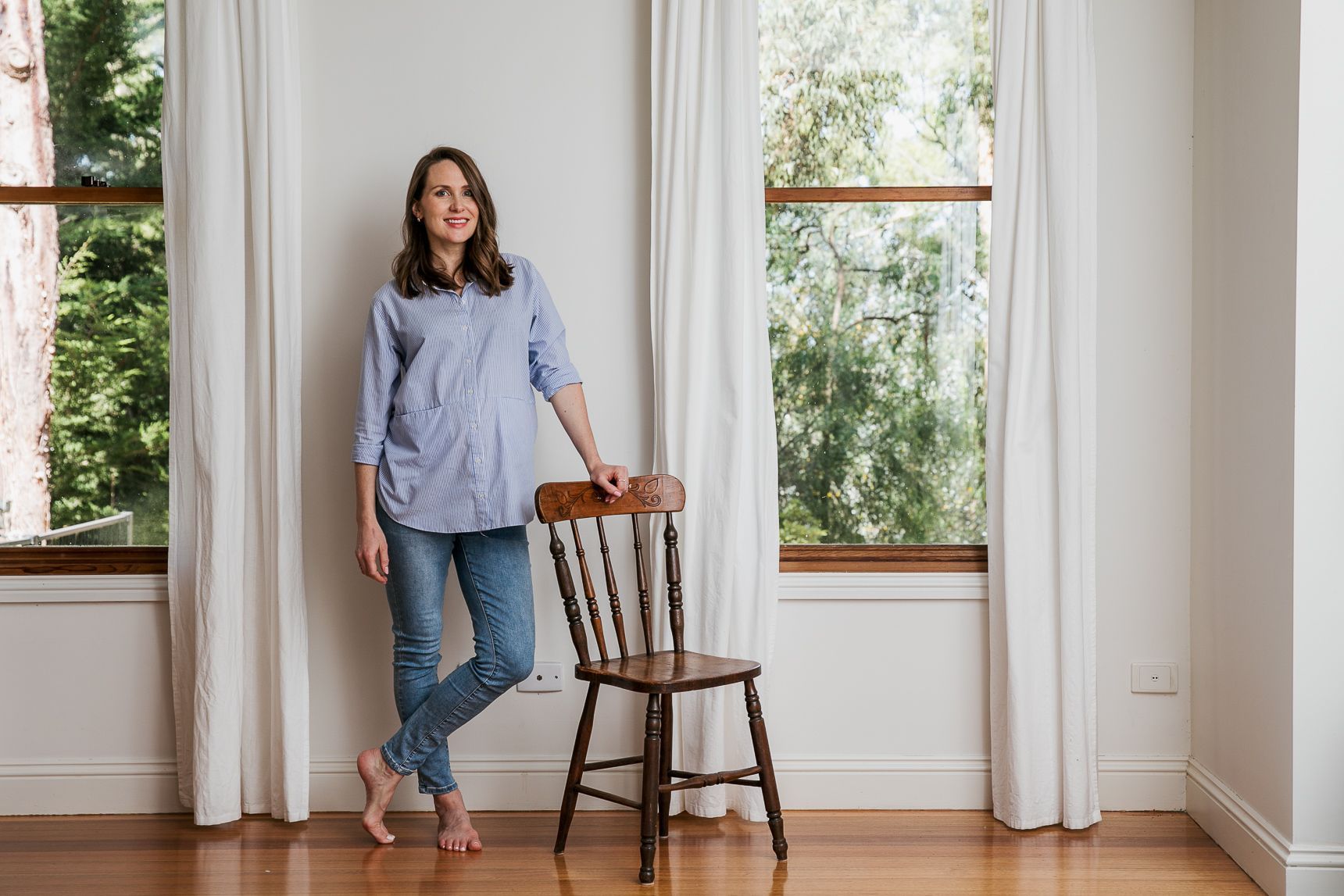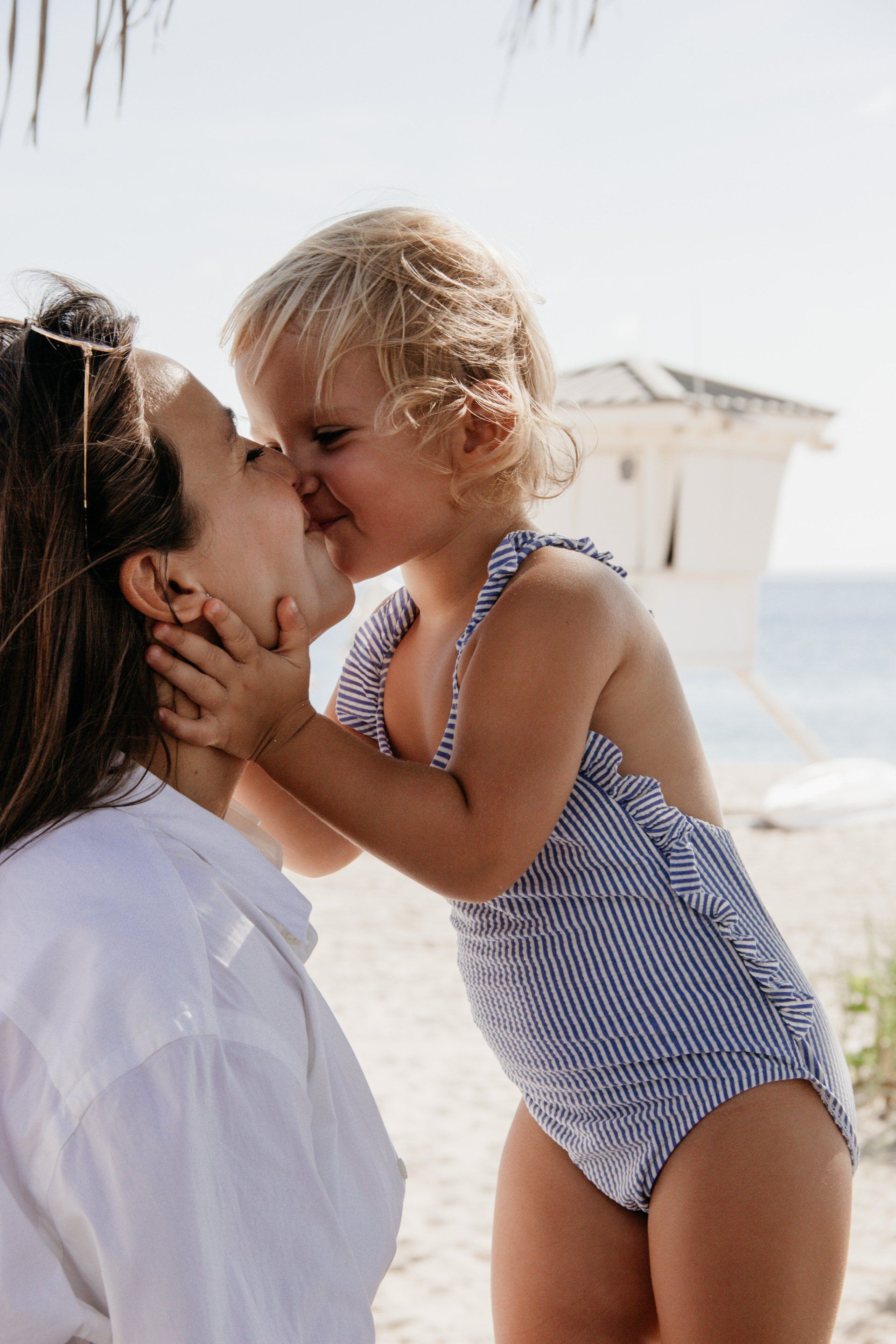10 Easy Ways to Start Becoming a Minimalist
I’m not ashamed to admit that I like nice things. I love french perfume, soft linen, I even goo gah over a designer handbag. However, over the last five years, my relationship with stuff has changed. As I have become more conscious of climate change and the health benefits of living without clutter I have gradually started to embrace minimalism.
At first, I was worried I would have to go without all the things I loved and live a life of lack. But I have discovered something amazing: living like a minimalist doesn’t mean giving up all your possessions or any kind of detriment – in fact, it’s the complete opposite!
Living a minimalist lifestyle allows you to do more of what you love. More of the activities, people and places that bring you joy, the complete opposite to my first reaction.
10 tips to set you on your path to minimalism.
1. Minimise the number of clothes you own
Reducing the number of articles of clothes in our wardrobes enables us to make quick dress decisions that best suit our needs and start the day smoothly!
I used to take a long time to get ready, which dress, which shoes, what jacket…the list was endless. Now, with a reduced wardrobe, I have only clothes I love to wear. Using the Konmari Method I forced myself to let go of anything I wasn’t sure about – now getting dressed is simple – I love everything I own.
It’s easy for us as humans to be overwhelmed by all the decisions we have to make in a day – which is why this tip can help reduce daily stress.
2. Minimalists stop shopping for fun
Buying for buying sake is a bad habit. The high we feel from acquiring something new quickly fades and we are left with excess and less cash in our pockets!
The more I stopped shopping for fun the less guilt and shame I felt towards my growing wardrobe and op-shop dumps. Now when someone asks me to go clothes hunting with them, I immediately think about other things I could do instead – in many ways, embracing a minimalist lifestyle does not mean giving up, instead, it means that you can do more of the things that bring you joy. And think about it – who really needs a new pair of jeans every year!
Embracing a minimalist lifestyle does not mean giving up, instead, it means that you can do more of the things that bring you joy.
3. Keep advertising email to a minimum
How much time do you spend reading (and deleting) advertising emails that you don’t want? I’m not talking about the important ones from your bank or credit card company, I mean the “Your exclusive member reward” emails!
Your inbox isn’t storage space for unnecessary information and it doesn’t require more than one look to sort out what’s worth opening! This is such an easy way of removing some clutter in our life – unsubscribe today!
Check out Tips to Decluttering and Simplifying Your Life for more digital simplification ideas.
4. Tell your friends and family you don’t want gifts
What if you didn’t have to buy (or receive) all those gifts every year? Imagine how much less clutter your home would have, time back in your calendar and money saved! Better still, imagine if instead of stuff we swapped cards, and shared a special meal?
I will be honest, when I first started refusing gifts I felt bad about it. But that was because I was doing it wrong – I wasn’t providing an alternative. People want to show they care, so now I offer a gift alternative such as an activity together, pooled funds for a larger piece or a simple bunch of flowers. Saying no to gifts doesn’t have to be hard, just be honest, thank people who honour your wishes – and give alternatives.
Saying no to gifts doesn’t have to be hard, just be honest, thank people who honour your wishes
5. Add mindfulness to your minimalist journey
Minimalism is an excellent way to bring mindfulness into our homes. When we have too much clutter in our lives and we can’t see what is important. Minimalism as a lifestyle brings focus to the things that matter most.
6. Let go of anything that doesn’t have a use
If you don’t use it do you really need it? It doesn’t matter how much money was spent originally; if it’s been sitting untouched and it doesn’t spark joy to look at, or you wouldn’t use it if you had the time / knew it was there – let it go.
Don’t get too caught up in the waste create, disposal is the last step in the conscious consumption process. Make sure you do the best you can to dispose of it responsibly, but ultimately you already own the waste and holding onto it isn’t going to make the waste disappear. Treat it as a lesson for next time.
Click here for sustainable declutter solutions.
Do you want more time with your kids or stuff in your house?
7. View money as time, not what you can buy
Money equals time, we’ve all heard it before, but how should you view money? One way is to start thinking of every dollar as equal to the time spent to make it.
When out shopping, or dreaming of a bigger house, faster car or kitchen reno ask yourself “Do I want this more than days off with my family?” or “Is this worth the double shift? Sometimes the answer will be yes, and others, the reflection on time will put things into perspective.
Viewing money as time can help us to work less and play more! It can allow someone who may typically work twelve hours shifts to work eight, afford a rostered day off or even retire early.
Plus, what is the use of having beautiful things if you don’t have time to enjoy them?
8. Minimalist homes let go of doubles
Two of everything isn’t needed. I’ve found the only things that I usually need a double of are towels, some dinnerware, socks and undies. If you’re anything like me, you will go hunting in the wash basket for your favourite t-shirt and hoodies anyway!
Have an open mind about what items can do without; one black jacket, one umbrella, one pair of running shoes. Give it a go.
9. Get creative
Creativity helps soothe stress and anxiety, supporting the transition into a reduced consumption lifestyle.
The best way to cultivate creativity in your life is to add in more activities that bring out your creative side. Simple activities such as sketching, craft, dancing, singing, cooking, or even playing an instrument – anything you find enjoyable!
10. Keep your colour palette to a minimum
Creativity helps soothe stress and anxiety, supporting the transition into a reduced consumption lifestyle.
The best way to cultivate creativity in your life is to add in more activities that bring out your creative side. Simple activities such as sketching, craft, dancing, singing, cooking, or even playing an instrument – anything you find enjoyable!

